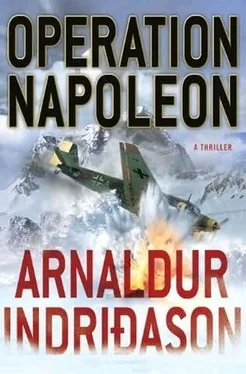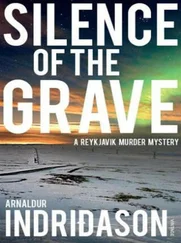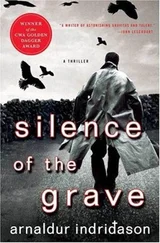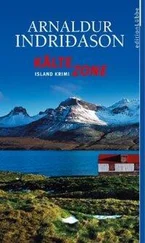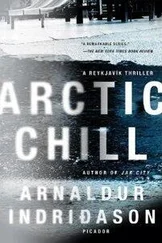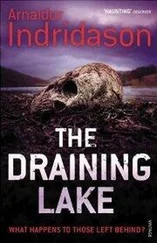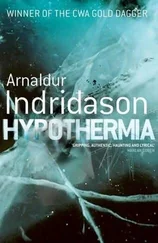‘You sound tired, Vytautas.’
‘I am tired. When this is over I’m going to retire.’
Miller took another sip of brandy. It was his favourite label, an exclusive French cognac, and he savoured it lingeringly before letting it slip down his throat.
‘The brothers told me that the winter of ’45 was unusually hard,’ he remarked. ‘The snow didn’t melt on the slopes above the farm until July. I searched the area with a small party at the time but we found no trace of a crash. The fuselage must be fairly intact under the ice, which means the bodies must be too. They’ve been deep frozen for more than half a century.’
He paused.
‘I envy that animal Ratoff. I’ve been looking for that plane all my life and now that it’s finally been found I’m too old to see it. When will it reach Argentina?’
‘Ratoff says four days, though that could change. There’s bad weather forecast for the area – a storm’s expected within the next twenty-four hours. You can always come to South America if you feel up to it.’
But Miller was far away. He was thinking of the layers upon layers of snow and ice he had spent so many years fruitlessly probing. The glacial accumulations, winter after winter, blizzard after blizzard, burying the frozen casket ever further from the world.
‘I’ve often thought it would probably be best for us if the glacier held on to the plane for ever, so we wouldn’t have to worry about it any more. It would be best for everyone.’
‘Maybe. Sometimes I think that damn plane is the only reason we established a base in Iceland. Sometimes it seems that important.’
Silence fell on the small room again.
‘About the sister? Can’t we let it go?’ Miller asked eventually.
‘Not until the transport’s airborne. After that it won’t matter.’
‘So all she need do is lie low for a few days and she’ll be out of danger?’
‘Something like that.’
Miller took another mouthful of brandy.
‘Who over here knows about the discovery then?’ he asked.
‘You and me. The defense secretary who’s under the impression that the matter involves Jewish gold. A handful of individuals at the company. The others are all dead and buried.’
‘And soon we’ll be joining them.’
‘It’s ancient history; few people apart from us know what the plane really contains. These new young men don’t appreciate the situation. They’re too naive to understand the need for secrecy. They don’t care if the plane’s story gets out. They might even try to exploit it for other purposes, God help us. They’re fanatics. We mustn’t drag this out – the longer the recovery takes, the more likely it is there’ll be a leak.’
‘When you talk of fanatics…’
‘I mean I can’t be sure what they’d do if they knew the role the plane played.’
‘It’s too bad we don’t have the astronauts to deflect the world’s attention this time around.’ Miller smiled wryly.
‘Poor Armstrong. He never had a clue what he was doing in Iceland,’ Carr remarked.
‘He took another giant step for mankind there.’
Miller abruptly changed the subject. Carr had checked his watch and he had the sense that he would soon be leaving.
‘I got to know the Icelanders a little when I was stationed over there in ’45. A baffling nation. They live on this rocky outpost of Europe in the far north of the Atlantic. It’s dark most of the year round and for centuries they lived in dwellings little better than holes in the ground; rocks and peat sods were the only building materials they had to hand. When I was there they were just beginning to emerge from the ground, just starting to build themselves proper houses. Yet despite all that they were a cultured people. Take those brothers, for example – they’d read Milton in Icelandic translation. Knew every word. They’d learnt long passages of Paradise Lost by heart.’
‘What’s your point?’
‘There aren’t that many Icelanders in the world. Let’s not reduce their numbers unnecessarily.’
‘I assure you we won’t.’
Miller looked down at the glass in his hand.
‘If I can’t make it to Argentina, will you send him home to me?’
‘As I see it, nothing has changed since we last went over the procedure. It’s only right that he should come back to you.’
‘I keep thinking about the temperatures. It can’t have got above freezing up there in fifty years. If he wasn’t badly injured, he ought to look just as he did. Strange how I can’t stop thinking about it. More as the years go by. It would be like going back in time.’
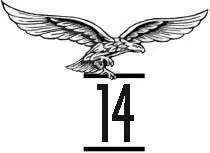
VATNAJÖKULL GLACIER,
SATURDAY 30 JANUARY
The Delta operators worked tirelessly at clearing away the snow. They were digging from both sides of the wreck simultaneously, throwing up great mounds, and in the growing light the plane became steadily more distinct. The nose now jutted up at a twenty-degree angle, though the tail was still buried in dense, hard-packed ice on which it was difficult to make any impact. The door, which was supposed to be located on the left-hand side behind the row of windows, had yet to be uncovered. From what they could tell, the fuselage was largely intact and not much snow appeared to have penetrated inside.
Powerful floodlights shed a yellowish glow over the scene during the night, but as the daylight grew stronger they were switched off, their hot surfaces sending a fine vapour rising and curling over the crust of the glacier. A number of white tents stood huddled on the ice, each containing a gas lamp that burned night and day for warmth. Largest of all was the communications tent. Electricity was provided by portable oil-powered generators, and the surrounding area was littered with oil barrels, snowmobiles, tracked vehicles, and beyond them large pallets for transporting the wreckage.
The work was progressing well. The wind was light and the temperature on the glacier hovered at around -15°C. Some of the men had been detailed to work with pickaxes to break up the hard surface, while another small group was busy cutting the plane in half with powerful blowtorches. The sections would then be loaded on to the pallets and towed down to where the trucks were waiting to drive them west to Keflavík Airport. Ratoff stood outside the communications tent, watching the blue flare of the oxyacetylene and the showers of sparks which flew from the metal carcass. By his reckoning, the job was on schedule. A storm was forecast but it was expected to blow over quickly.
In many ways it was fortunate that the plane had been found in winter. Of course, the weather was changeable in the extreme and the conditions for travel might prove difficult, but their activities were protected by the darkness and the lack of traffic in the area at this time of year.
As Ratoff watched, the men on the far side of the plane wreck abandoned their digging and gathered to peer at something in the ice. After a moment, one of them yelled to him. He set off towards them, ducked under the nose of the plane and joined the soldiers, to be met by the sight of a leg protruding from the ice next to the fuselage. The leg was encased in a black army boot that reached almost up to the knee and greyish trousers. Ratoff ordered the men to uncover the body and soon the entire corpse, or what was left of it, became visible.
It looked to Ratoff as if it had been deliberately laid there beside the plane. Some of the passengers had evidently survived the crash and been capable of moving around and tending to those who had died on impact. The man was dressed in the uniform of a high-ranking German officer, though Ratoff did not recognise the insignia. He wore an Iron Cross at his neck, his hands were crossed over his breast and his face was covered with a cap. His other leg was missing: apparently it had been ripped off at the hip. The gaping wound, revealing the white bone, was clearly visible but the leg itself was nowhere to be seen. Ratoff bent over the body with the intention of examining its face but found the cap frozen to it.
Читать дальше
